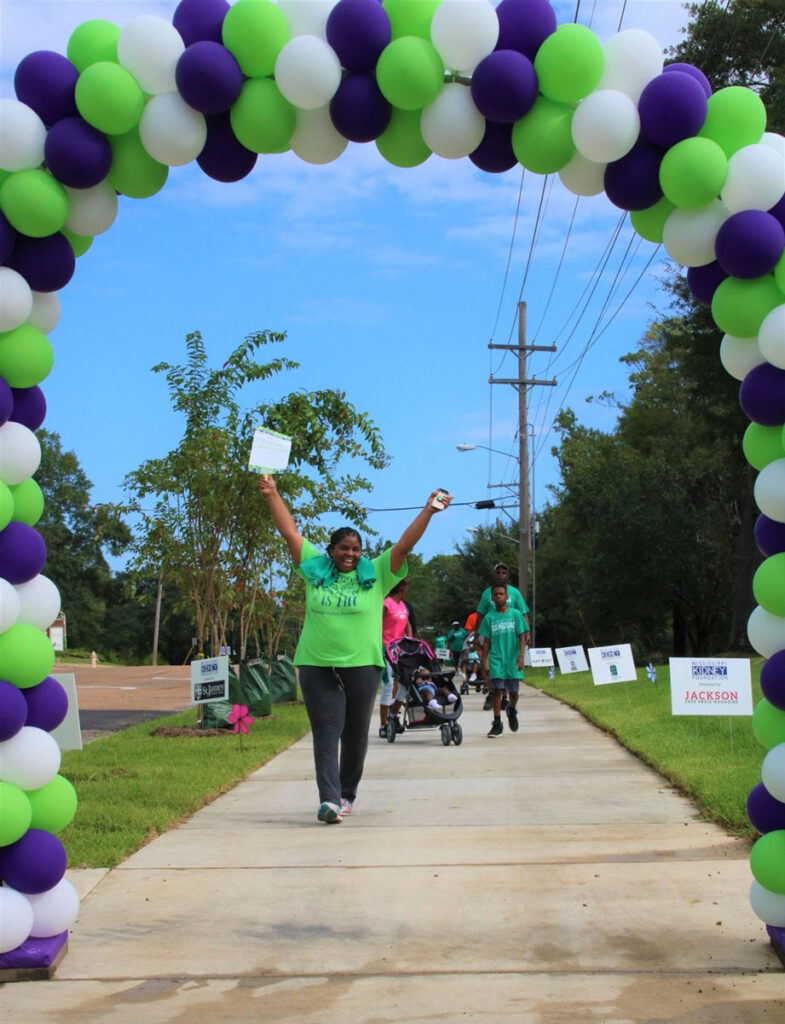Nobody Cares About Kidneys Until They Fail

[ad_1]
I normally finish most speaking engagements saying, “Nobody cares about kidneys until they fail.” And from my perspective, it’s the most accurate assessment of kidney disease.
I have served as the executive director of the Mississippi Kidney Foundation for a little more than a year, and I am always excited to educate people about kidneys. Our kidneys are in our lower back, and this small vital organ is normally about the size of a computer mouse. Our kidney’s function serves to clean the blood, help control blood pressure, help make red blood cells and keep bones healthy.
Chronic kidney disease is an increasingly common but usually preventable condition. More than 37 million Americans have kidney disease and millions more are at risk. However, the Centers for Disease Control and Prevention reported that nine out of 10 people with early kidney disease don’t know they have it because it usually has no symptoms until the late stages. Simple blood and urine tests can tell how well the kidneys are working, but kidney disease often goes overlooked.
About 555,000 people in America are currently on dialysis and nearly 230,000 are living with kidney transplants, creating a whopping 100% increase since 2000. Mississippi currently ranks 49th in kidney disease with more than 8,000 people currently depending on dialysis to live and another 2,000, including me, depend on a kidney transplant to survive.

The American Kidney Fund found that the three leading causes of kidney failure are diabetes, hypertension and obesity, and Mississippi currently ranks in the bottom three in all three categories. Kidney disease is the ninth leading cause of death in the United States, with kidney disease oftentimes leading to congestive heart failure, heart attacks and strokes.
Chronic Kidney Disease and End Stage Renal Disease are often used interchangeably when discussing kidney failure, but have different meanings. CKD is a condition in which the kidneys are damaged and cannot filter blood as well as they should, leaving excess fluid and waste from blood remaining in the body (stages 1 through 4), while ESRD is loss of kidney function and is only cured with dialysis or a kidney transplant. Symptoms of kidney failure include fatigue, foam in your urine, high blood pressure, loss of appetite, fluid in the lungs, insufficient urine production, itching and severe unintentional weight loss.
Kidney Failure Prevention: Proper Diet and Exercise
Despite all the health-care issues Mississippi has, the lack of knowledge of what a poor diet and lack of exercise have on our bodies are often overlooked. Foods that people can eat to help their renal diet include cabbage, cauliflower, apples, blueberries, salmon, egg whites and cranberry juice. Coincidentally, some foods that are not great for kidney failure might be surprising to the average reader. Leafy green vegetables, tomatoes, beans, bananas and whole grains are not recommended due to high sodium, potassium and phosphorus content.
Exercising for 30 minutes per day will lower the risk of kidney disease as well as drinking as much water as possible. Jackson’s ongoing water crisis has contributed to Mississippi’s capital city having a 26% higher prevalence of kidney failure than the national average with more than 75% of African Americans in Jackson who have kidney failure also having diabetes or hypertension.

The Mississippi Kidney Foundation is currently working diligently in partnership with the Mississippi Organ Recovery Agency in support of the Living Donor Protection Act. This legislation will provide protection to organ donors from higher premiums or denial of insurance coverage based solely on their organ donor status in addition to ensuring that donors will not lose their jobs for taking time for transplant surgery and recovery.
More than 100,000 people in America are on an organ-transplant list, and 87% of the lists are people needing a kidney, the American Kidney Fund reports. Mississippi is one of 19 states that have not passed protections for living donors, as the average long-term survival of kidneys from live donors is 12 to 20 years versus seven to eight years for those obtained from cadaver donors.
The Mississippi Kidney Foundation strives to educate Mississippians about kidney-failure prevention and help current dialysis patients. We financially support patients from all over the state with transportation and nutrition assistance. With the Mississippi Kidney Foundation being a 501(c)3 nonprofit organization, we rely heavily on donations and community support.
Our upcoming Kidney Kick-Off will feature the Michael Rubenstein Memorial 5K Kidney Walk, a health and wellness fair, and a family picnic to raise funds for the Mississippi Kidney Foundation. Although this event is targeted at kidney patients and their families, we greatly appreciate any community participation. Our Kidney Walk will be held on Saturday, Oct. 21, 2023, at Tougaloo College from 9 a.m. to 1 p.m. Registration starts at $30 per person for the walk and $60 to include lunch and a Mississippi Kidney Foundation T-shirt.
For more information, visit kidneyms.org. If you’d like to register to participate in the walk or just want to donate, please click here.
I encourage you to take care of your kidneys and they’ll take care of you.
This MFP Voices essay does not necessarily represent the views of the Mississippi Journalism and Education Group, the Mississippi Free Press, its staff or board members. To submit an opinion for the MFP Voices section, send up to 1,200 words and sources fact-checking the included information to [email protected]. We welcome a wide variety of viewpoints.
[ad_2]
Source link
